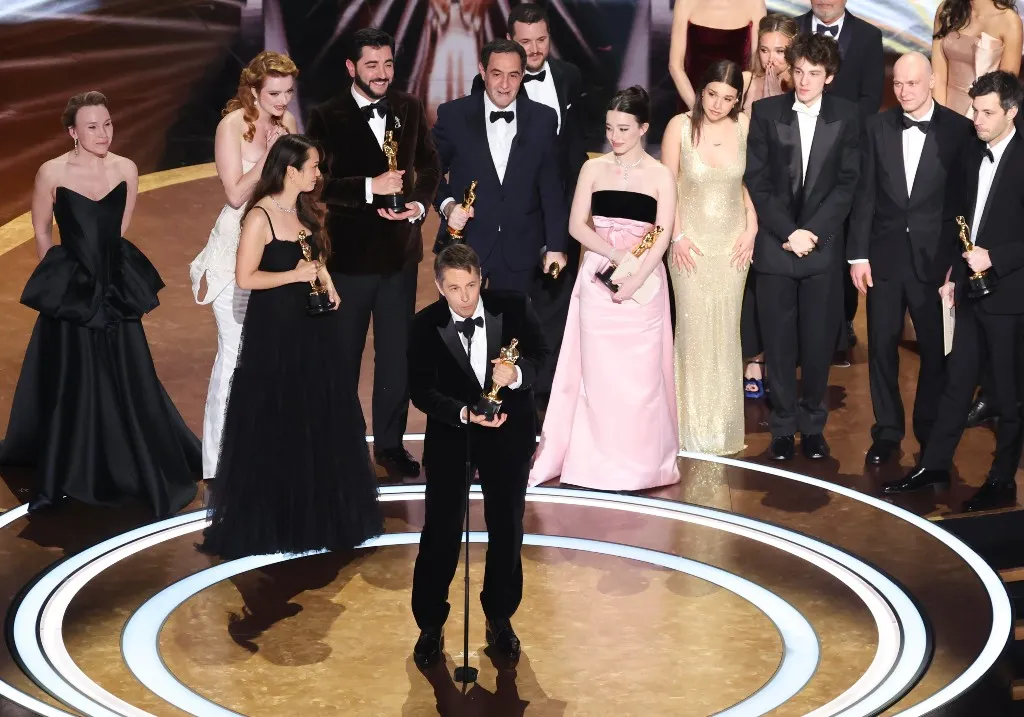The 2024 awards season concluded with the 97th Academy Awards on Sunday night. With several predictable wins and surprises, here is a full recap of the ceremony’s awards.
Best Picture: Anora
Sean Baker’s Anora brought home the best picture award after what many thought to be a shaky season for the film. Predicting this category’s winner became clearer after it won big at the directors, writers and producers guild awards. Only a small handful of films have lost best picture at the Oscars after receiving this package of awards, notably Brokeback Mountain (2005) and La La Land (2016). With this in mind, Anora took the lead as the category’s frontrunner. This is the fourth film to win both the Oscar for best picture and the Palme D’Or, the crown prize at the Cannes Film Festival, following Parasite (2019), Marty (1955) and The Lost Weekend (1945).
Anora may feel less grand in scale than recent winners Oppenheimer and Everything, Everywhere, All at Once, but it’s nonetheless a mighty milestone for the practice and philosophy of independent filmmaking.
Best Actress: Mikey Madison – Anora
This year’s closest race by far finished with Mikey Madison’s victory for her role in Anora as the film’s titular protagonist, a young sex worker from Brooklyn. At 25-years-old, this makes her the first member of Gen Z to win an acting category Oscar. In a race as close as this, the actress in the stronger film by nominations and reception historically has had the upper hand. Last year’s race between frontrunners Emma Stone and Lily Gladstone ultimately saw Stone receiving her second Oscar due to Poor Things’ strength over Killers of the Flower Moon, despite Gladstone performing strongly at precursors.
Madison concluded her speech by recognizing the sex worker community, stating she would “continue to support and be an ally.”
Although Demi Moore’s loss may sting for some, and she would have been entirely deserving of a win, The Substance has already cemented itself as an instant classic in the horror genre. The Academy’s willingness to nominate films and performances of this genre are a win on their own and suggests a shifting willingness to recognize horror cinema as award-worthy.
Best Actor: Adrien Brody – The Brutalist
Adrien Brody won his second Oscar for his lead performance as Lászlo Tóth, a Hungarian-Jewish architect in Brady Corbet’s towering American epic The Brutalist. Apart from the Screen Actors Guild awards (SAG), which awarded Timothée Chalamet the best lead actor award for his portrayal of Bob Dylan, Brody comfortably secured himself a frontrunner spot from the film’s initial premiere at festivals.
Best Director: Sean Baker – Anora
Baker took home four Oscars at the ceremony, tying him with Walt Disney for the most Oscars won in a single night. During his acceptance speech, Baker spoke on the importance of keeping the tradition of going to the cinema alive:
“Right now, the theatre-going experience is under threat. Movie theatres, especially independently owned theatres, are struggling, and it’s up to us to support them. Parents, introduce your children to feature films in movie theatres and you’ll be moulding the next generation of movie lovers and filmmakers.”
Best Supporting Actress: Zoe Saldaña – Emilia Pérez
Though she arguably had a leading performance, Zoe Saldaña received the award for best supporting actress for her role in Emilia Pérez. While the film lost momentum this past month in the wake of controversy surrounding Saldaña’s co-stars and director Jacque Audiard, Saldaña successfully distanced herself and her campaign from this, landing her one of the film’s two wins out of its thirteen nominations.
Best Supporting Actor: Kieran Culkin – A Real Pain
The night’s first award was delivered to Kieran Culkin for his supporting role in Jesse Eisenberg’s A Real Pain. Like his fellow supporting-acting winner, he swept through all major televised precursors, making this one of the easiest categories to predict for those following the award season. Nonetheless, it’s a deserved win for a charismatic performance in a small film with a big heart.
Best Original Screenplay: Anora
Sean Baker took home the award for best original screenplay with Anora. This year’s original screenplay category was up–in–the–air for the most part, with The Substance and A Real Pain picking up awards at other ceremonies and festivals. Anora’s screenplay win at the Writer’s Guild of America awards (WGA) pointed in its favour despite missing at other televised ceremonies.
Best Adapted Screenplay: Conclave
Peter Straughan won the award for best adapted screenplay with his adaptation of Robert Harris’ 2016 novel Conclave. Unlike its sister category, adapted screenplay seemed far clearer cut from the jump due to the weakness of other nominees’ campaigns, though not necessarily their screenplays. Hence, this category became an easy prediction once Conclave swept through the precursor awards.
Other Categories
Best International Film: I’m Still Here (Brazil)
Best Animated Film: Flow
Best Documentary Film: No Other Land
Best Film Editing: Anora
Best Cinematography: The Brutalist
Best Score: The Brutalist
Best Hair and Makeup: The Substance
Best Costume Design: Wicked
Best Production Design: Wicked
Best Sound: Dune: Part Two
Best Visual Effects: Dune: Part Two
Best Original Song: “El Mal” –— Emilia Pérez

